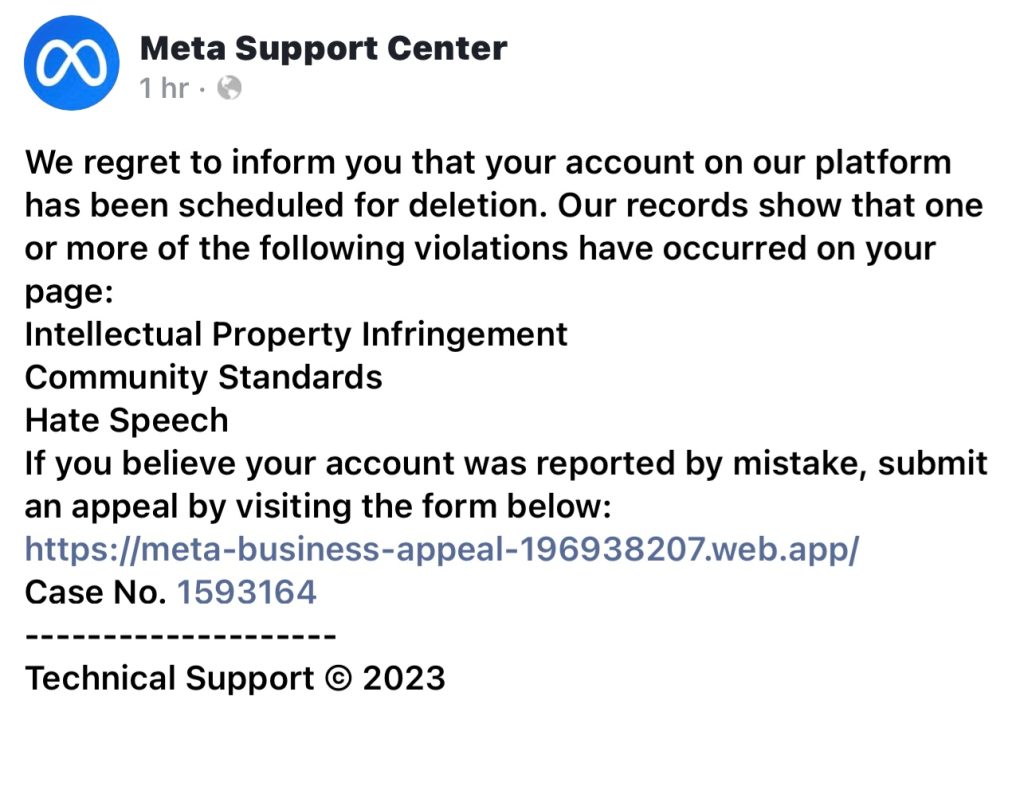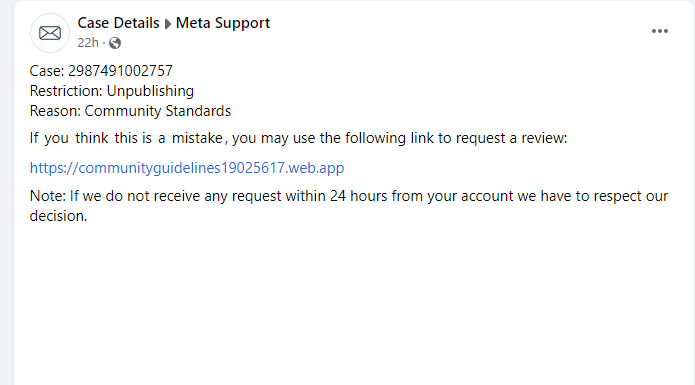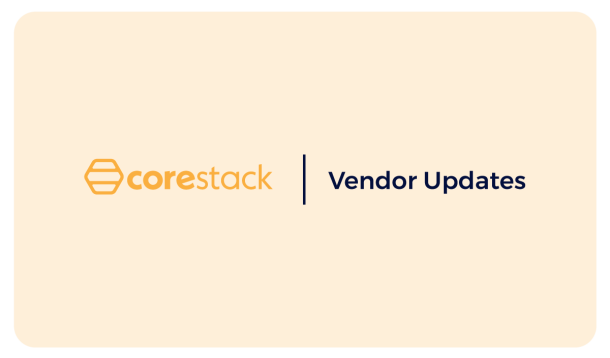Be Aware of Facebook Phishing Scams
Did you know that 19% of social media users have fallen victim to scams on Facebook?
In recent months, a surge in Facebook Meta phishing scams has posed a big threat to users, relying on their fears of losing their accounts or pages. These scams involve notifications, which that intimidate users with the prospect of account or page deletion due to supposed policy violations.
As these deceptive practices continue to arise, it is crucial for users to be aware and take necessary precautions to safeguard their online accounts. A recent figure showed that direct financial loss from successful phishing increased by 76% in 2022 alone, read on to learn how you can protect your FE&S company’s reputation and security.
Beware of Deceptive Tactics
Scammers create a fake Facebook page or group that mimics official Facebook pages, then post messages or links warning users of policy violations that will their account or page being deleted if they do not follow the “appeal” link provided.

Messages or post typically prompt a user to click a link to verify their identity, appeal the violations or take other immediate action to prevent deletion. Clicking the link takes users to a fake website that mimics the official Facebook login page or appeal page and asks them to enter login or other personal information. The scammers then use this information to gain access to the user’s account and steal their information or post scams links to their friends and followers.
Protect Your Social Media Accounts: Tips to Prevent Scams and Ensure Security
Avoid falling victim to these scams and stay vigilant while using personal profiles and professional pages. Here are some tips to keep your account and page safe:
- Be cautious of any message, post or notification that threatens to delete your account or page due to policy violations, especially if it asks for personal information.
- If you do open the “appeal form” hover over what should be clickable links in the footer and search sections of the page. If there are no clickable options it is not a real Facebook Meta page and has been create to mimic the look of Facebook Meta’s support page.
- Enable two-factor authentication to add an extra layer of security to your account.
- Look for pages and groups that were created in recent months
- Report any suspicious messages, links, or pages to Facebook.


Stay Informed and Stay Safe Online
By following these tips, you can protect yourself and your account from Facebook phishing scams that use fake notifications to trick users into giving away your personal information. Remember, Facebook will never ask you to verify your identity or personal information through an unsolicited message or notification. If you receive a suspicious message or notification, do not click on any links and report it immediately to Facebook.
Take proactive measures to safeguard your business page, the reliability of your businesses online presence factors into your reputation on and off the web. If you encounter any suspicious Facebook notifications, don’t hesitate to contact your dedicated account manager for assistance.
Have a Request for a New Feature?
Feel free to let us know at anytime which features you’d like to see in Corestack Product Information Manager. You can submit a feature request using our Corestack Service Desk’s Feature Request form linked below.


